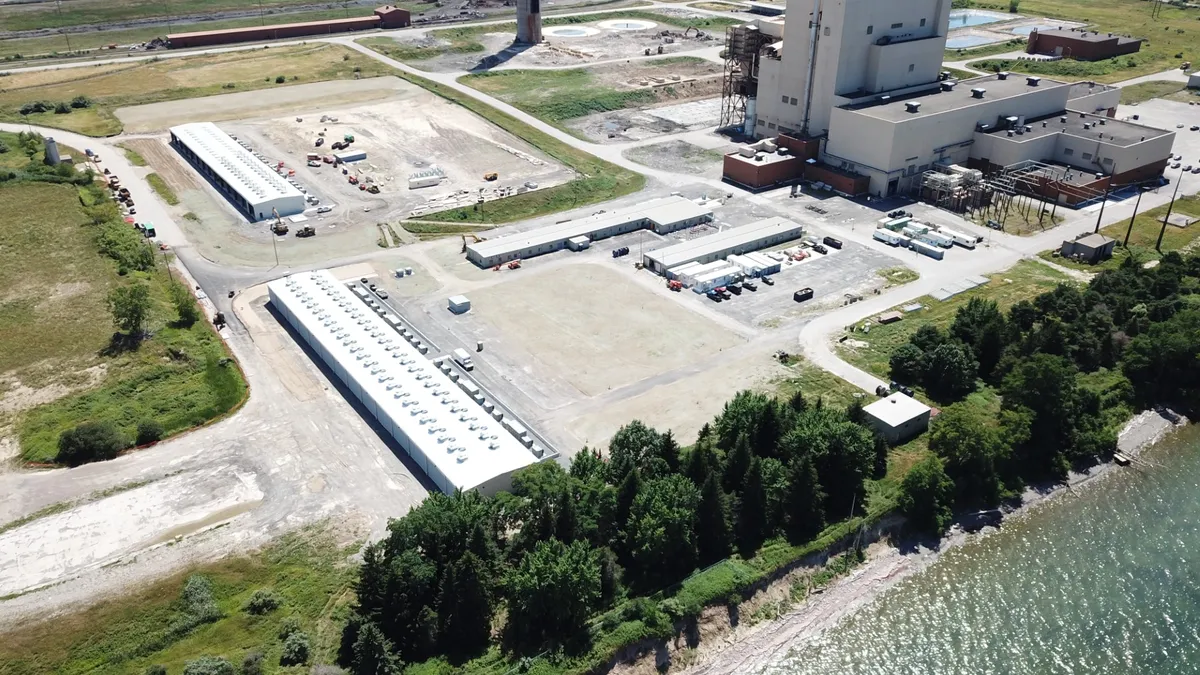Back in the spring of 2022, Patrick Fleury took on a tough assignment when he made the leap to join bitcoin miner TeraWulf as its new CFO.
A Wall Street veteran, Fleury began his career at Bank of America and went on to gain restructuring as well as buy-side investment banking experience at such firms as the Blackstone credit entity formerly known as GSO Capital Partners. Fleury was brought in to TeraWulf in order to “fix” what was then an over-leveraged company, he recalled in an interview.
“It was hard to make payroll every two weeks,” Fleury said, describing his early days at the firm, noting that he capitalized on his relationships with many of the company’s lenders that he had worked with. “I said, ‘Hey guys I’m in a new seat but…I need an amendment from you and we’ve got to get this right — otherwise the company’s going to end up in bankruptcy.’”
Fleury, 46, spent his first year focusing on cutting costs “down to the bone,” tackling some $125 million in debt owned by seven different credit funds and working to increase the mining operations’ cash flow, he said. Meanwhile, the timing of the company’s December 2021 IPO layered on extra pressure: bitcoin’s value plummet from about $50,000 from late 2021 to about $20,000 in mid 2022.
By February of last year, the company turned a corner: it had entered into a term sheet with existing lenders to replace amortization of the term loan with interest-only payments, and raised approximately $25 million in equity proceeds in a follow-on public offering.
“That allowed us to stabilize the company and put us on a path to success,” Fleury said. “Since then we have generated a lot of free cash from bitcoin, which has allowed us to pay down our debt.”
Eliminating debt
Fast forward to last month, and the company’s debt outlook brightened again. TeraWulf said it made a final payment of $77.5 million on its term loan ahead of schedule, in a move that it asserted eliminates “all outstanding debt.” Meanwhile, bitcoin has shot back up above $60,000 and the company’s shares, while volatile, have nearly doubled this year, closing at $4.51 on Tuesday.
Currently the company’s business model and cash flow is tied to two low-cost, sustainably-powered bitcoin mining facilities. One of the sites is its 91% zero-carbon powered Lake Mariner Data Center in Somerset, New York, that largely runs on hydropower, he said. Its other site in Berwick, Pennsylvania, is 100% zero-carbon and powered by nuclear energy.
But TeraWulf doesn’t see itself as just a mining company, Fleury said. “We think of ourselves as an energy and power company that has access to low-cost, predominantly zero-carbon energy,” Fleury said, noting that the company keeps its costs down in part by tapping power at night and other times of lower demand.
And now, with the surge in power computing and artificial intelligence, the company plans to diversify to meet the increased demand for energy needed to serve data centers for AI-driven systems. The data centers will be very different: while traditional centers have a power density per rack of about 4 kilowatts, power computing centers that TeraWulf is targeting have a power density of about 120 kW per rack, Fleury said.
“Fast and furious” change
The rise in demand for power needed by new AI chips is coming “fast and furious” Fleury said. In North America, average asking rents for a 250- to 500kW requirement have surged 20% year-over year, according to a June report from real estate services CBRE.
That has left Fleury reprioritizing how he spends his days. He’s focused both on running the bitcoin mining operations more efficiently to maximize profits and spending many hours daily with CFOs and other C-suite executives who want hundreds of megawatts of power for their high performance data centers.
That pivot to become a company targeting data centers and AI hosting has helped bolster the stock of Core Scientific and TeraWulf as compared to other miners, Bloomberg reported last month. In turn, the buzz has been a double-edged sword for the company.
On the one hand, it has drawn interest from investors such as Steven Cohen's hedge fund Point72 Asset Management, which recently indicated it held 5,043,281 TeraWulf shares, according to an Aug. 19 securities filing. At the same time, an Aug. 15 report from short-seller Grizzly Research was critical of the firm, calling it a “house of cards used by insiders to enrich themselves” which has "relied on at-the-market financings and highly dilutive and destructive debt deals to fund its operations.”
In an emailed statement, Fleury said the short-seller’s report is filled with “inaccuracies, misrepresented data and unfounded personal attacks” and seems designed to spread misinformation about Terawulf “all for the short-seller’s own personal profit…TeraWulf continues to focus on driving strong operating and financial results.”
Looking ahead, Fleury sees the pivot to high powered computing as attractive on a number of counts. Compared to bitcoin mining, where the company is in effect a “price-taker” and can only control its costs, the high powered computing sector is a more financeable market with a stable revenue in which companies generally sign five to 20-year contracts, he said.
For now, whether bitcoin will remain in TeraWulf’s future as it diversifies is unclear and depends on how the economics play out in both businesses, he said. “I just don’t know,” Fleury said. “But I can tell you for the next three to four years we will have very little incremental bitcoin mining.”




















